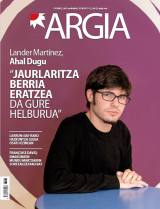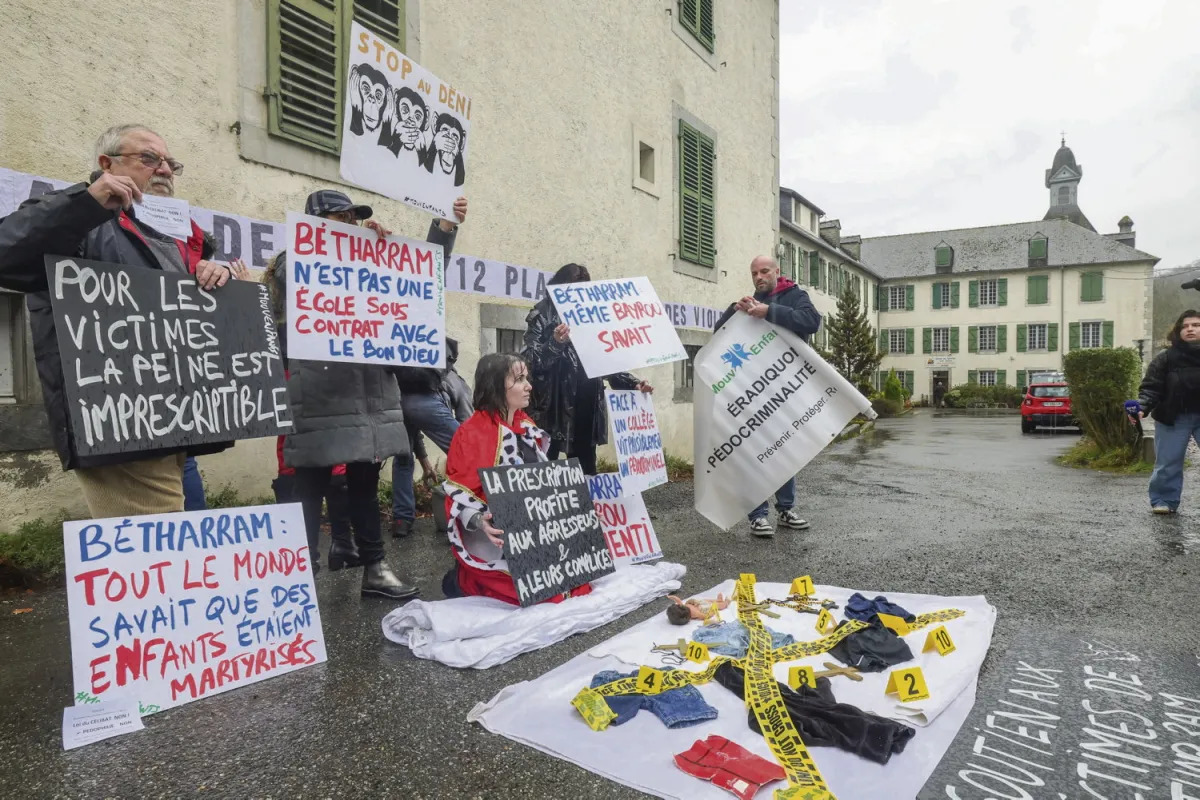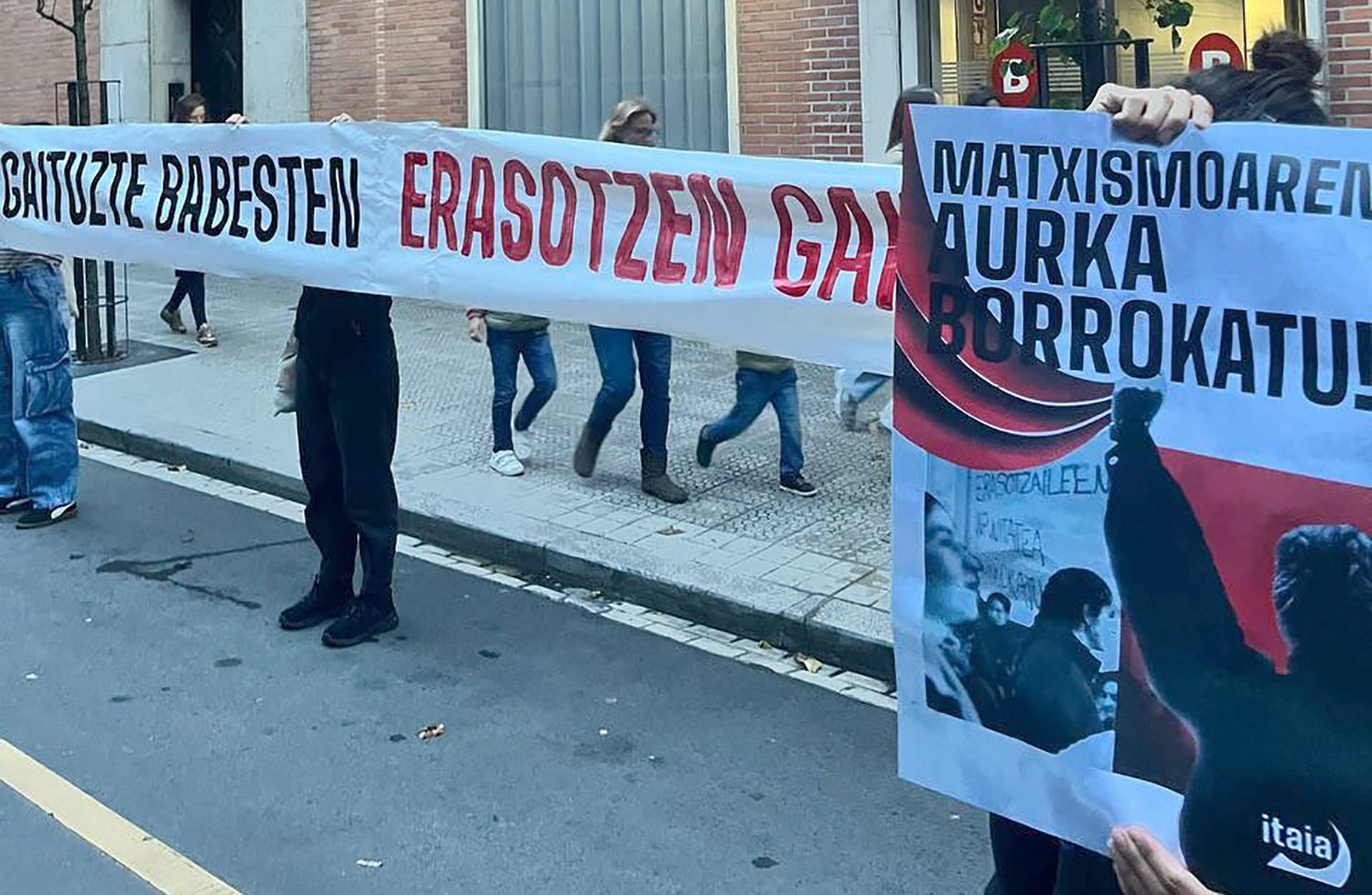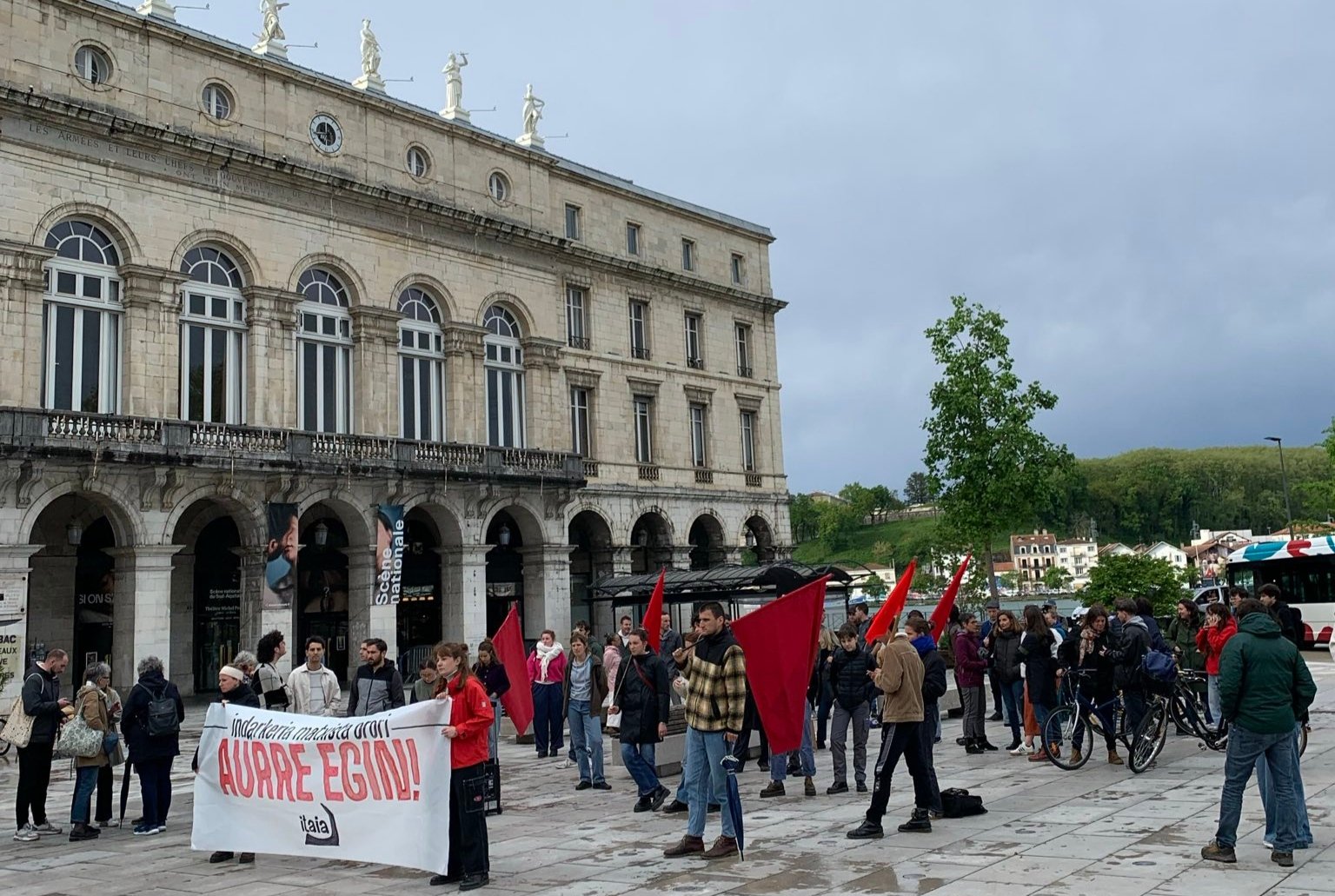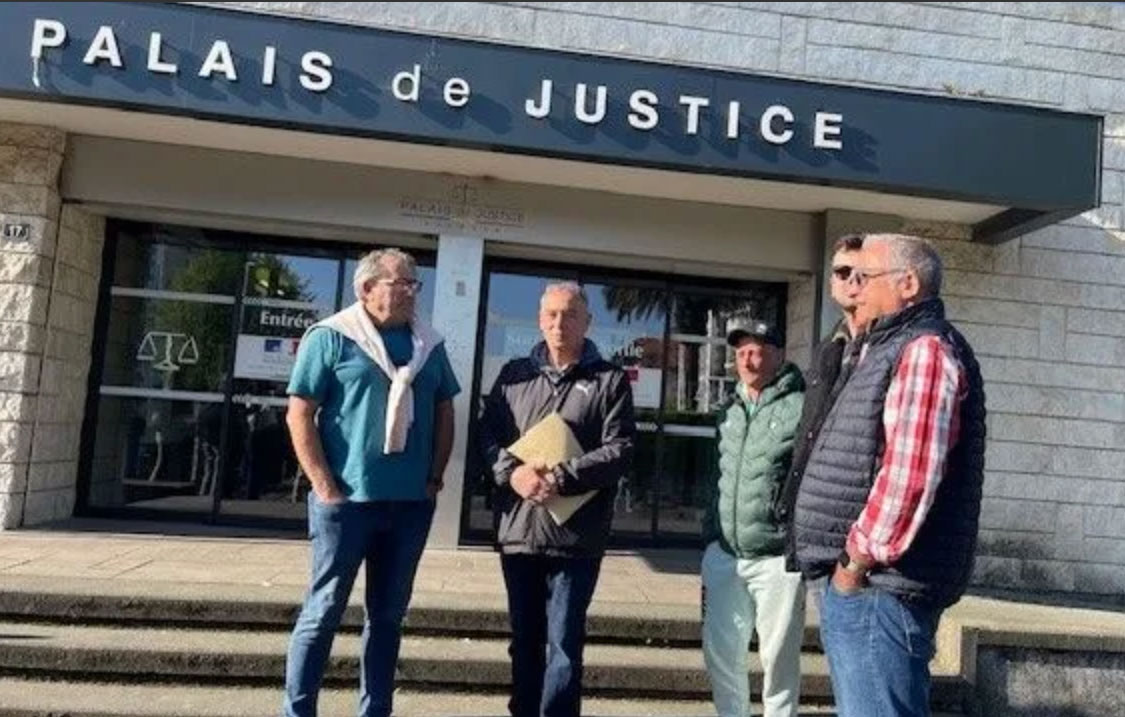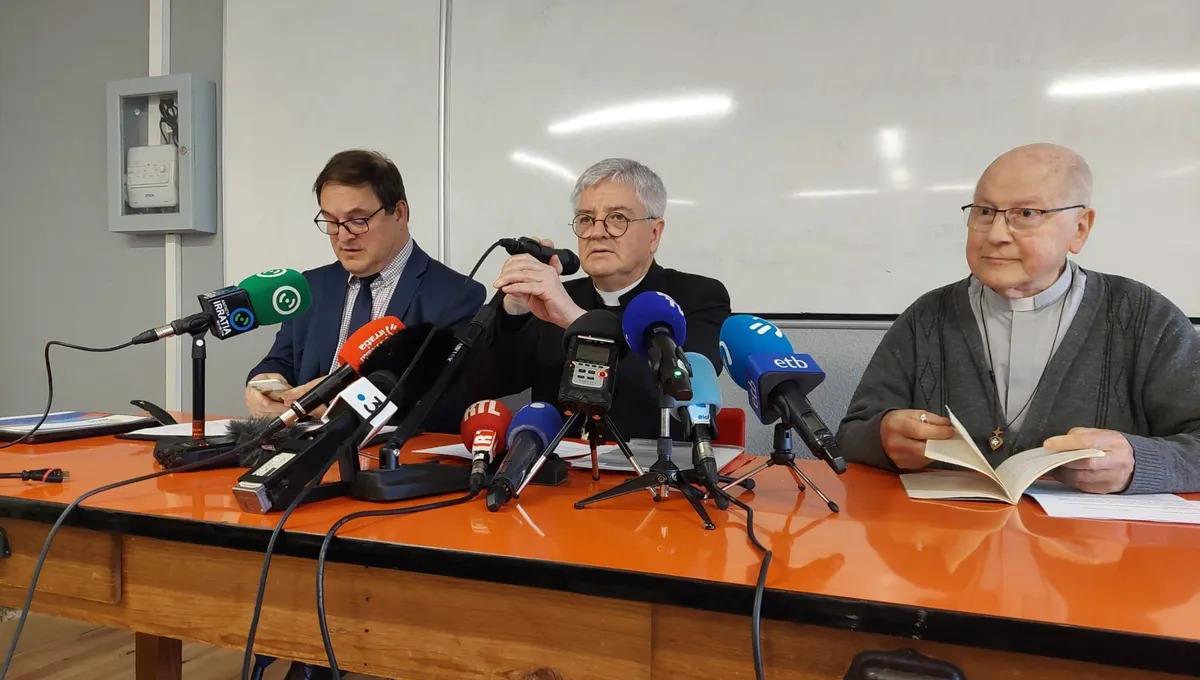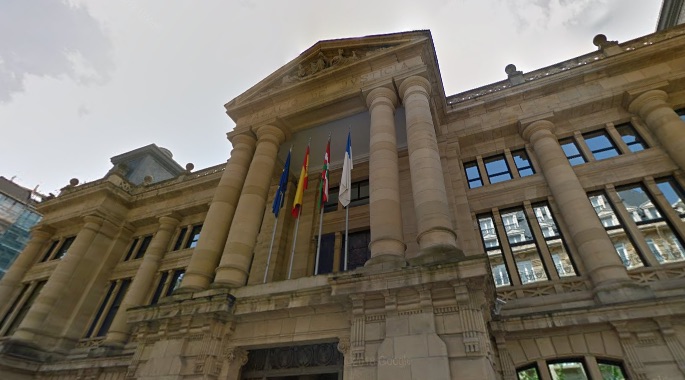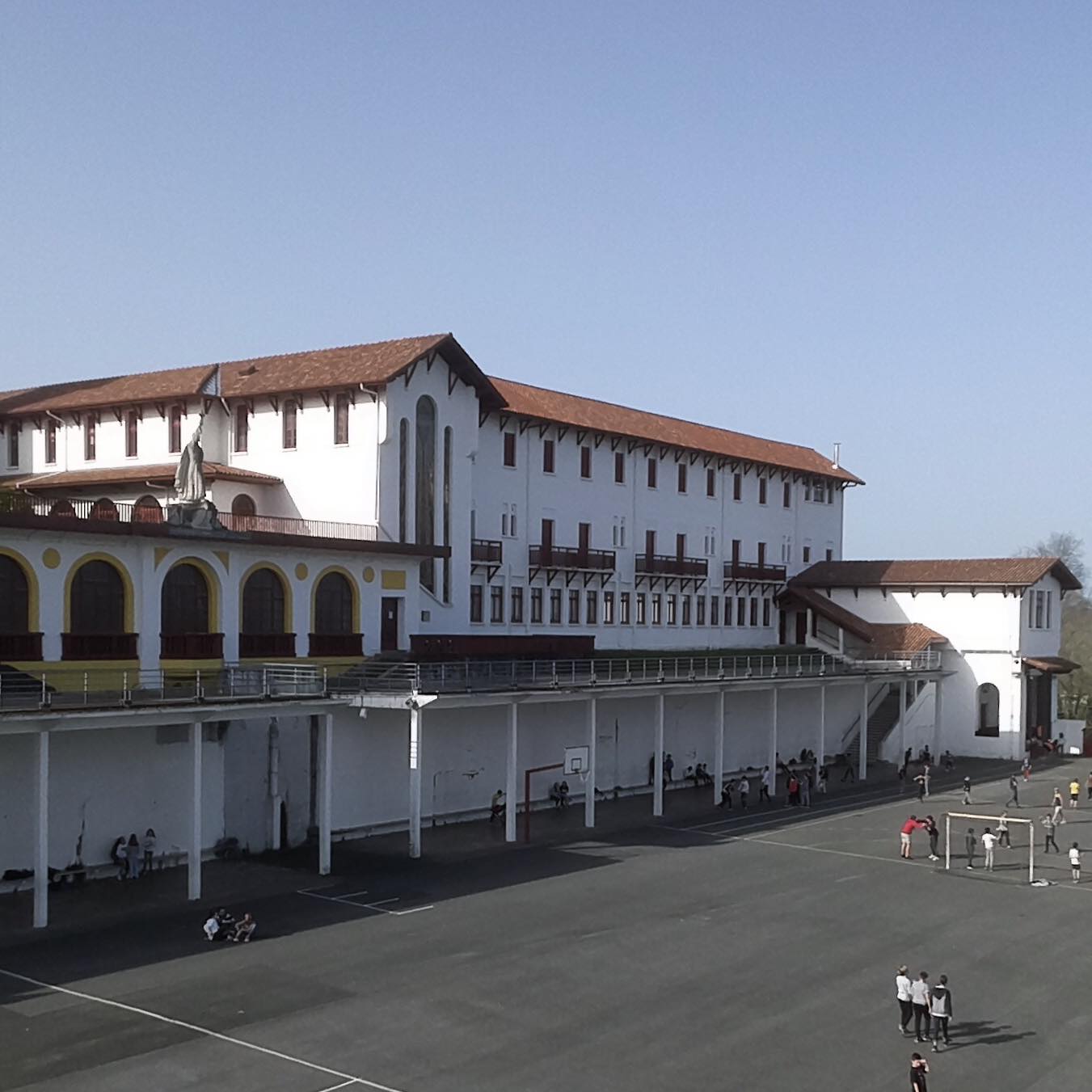When is peace for women?
- About 90 people in the Katakrak of Pamplona, organized by the Emagin This is not our peace in feminist school. Objective: To make a feminist reading of the political-armed conflict of the Basque Country. One of the questions: Will they continue to kill us, rape us, despise women in a standardised Basque society?
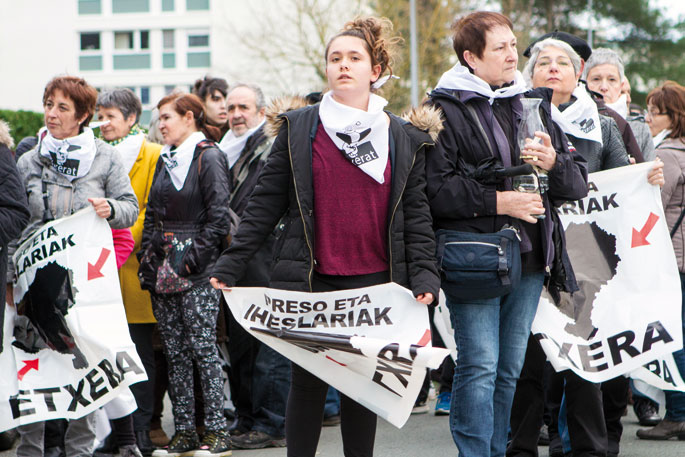
The issue has always been a cause of concern for a large part of the feminist movement in the Basque Country, and it cannot be denied that it has been going around lately. A summer course organised by the EU in 2015 can be considered a milestone. Oihana Etxebarrieta, Zuriñe Rodríguez and Arantza Santesteban are the feminist researchers who, under the title Reading the conflict in Euskal Herria towards the feminist peace of the future, also on that occasion in Pamplona. Before and for several years, the feminist movement has done a fundamental job of reaching this point, and now, the context cannot be more propitious. Five years after the ceasefire announced by ETA, even if the peace process is in trumpets, it is a good time to rethink and redebate many things.
Many feminists face the question: What do we talk about when we talk about peace? And when we talk about violence? What does standardisation mean? In other words: Will they continue to kill us, rape us, despise women in a standardised Basque society?
If not governed, there is no peace
According to researcher Jule Goikoetxea, both peace and violence, as well as what is normalized society, have been considered patriarchal. The division between the public and the private is key to this understanding. In the audience are the same, the subjects, the men. In the private, however, women, dependents, caregivers of subjects (cooks of what subjects eat, cleaners of the shirts they dress), stand in the systematic expulsion of the public. The space of politics is the public space, so only those that occur in it, the responsibility of all, will be considered political conflicts.
Concentrating on a souvenir phrase: “In our normalized patriarchal society there is a conflict if men destroy each other and peace is established if men sign an agreement.” That is to say, in Euskal Herria there have been eleven women murdered for being women in the last ten years, but when we talk about the Basque conflict, this is not usually the case.
So what? It should be noted, once again, that the era is key. This is called Goikoetxea. See the opportunity to oppose the patriarchal conception of peace and begin to understand conflict from feminism, to begin to internalize that there are conflicts and no conflict.
From the point of view of the distinction between the private and the public, it seems essential that women take over government, something that has not been done so far. This is a very decentralised government. After all, women are not a minority, but half the people. And in some places, in many fields, we're working. The key is that everyone starts acting from their own space, and that this impact is understood at the macro level.
We are Basque gudaris...
The researcher Zuriñe Rodríguez's turn, and with it, to tighten the zoom and specifically to address the situation of Euskal Herria, drawing on Goikoetxea's most general analysis.
Rodríguez began to reflect through questions: Are there hegemonic and subalternating (first and second) violence in Basque society? What imaginaries have you formed? What we call the Basque conflict has reinforced the traditional roles of women? Did this conflict need a heterosexual social regime to endure? Who has cared for who in the Basque conflict?
The socialization of gender roles in the Basque conflict can also be read in the light of the evident distinction between the public and the private. In the public space, men, full-time gudaris. For them to act in this way, women are the private caregivers.
This balance has been maintained through different violent devices. On the one hand, maternity, understanding this as unconditional care. Vigilance has been recognised, praising the role of the mother, but it has not been considered political, that is, it has not been considered militancy (mothers have not been subject to the public sphere).
There have also been women who have not fulfilled the role of private female caregiver and have acted in the public sphere. They have also suffered violent devices, both on the outside and inside. From the outside (e.g. from the Spanish media), the negative stereotypes of Gudaris women have been fed: they are infamous, frightened and lesbian, in line with what has recently been said about the CUP women.
Others are the inwardly established corsets. The Gudaris women have eroded, supposedly praising their struggle, but they have not actually reached the problems of the Gudaris women, their crude situation. In this sense, Rodríguez has the intuition that it is not the same what is happening with the image of Kurdish women.
This violent eroticization manifests that gudaris women are rare, different from other normal and caregiver women. After all, all of these devices send a clear message to women: if they want to work in the public sphere, they will pay a great deal.
Instead, feminist revolts.
In addition to the interventions, they were also dedicated to collective exercises. This is not our peace in feminist school. After the morning sessions, the participants were divided into groups to detail the actions of the different agents involved in the political-armed conflict and, always starting from the experiences and feelings, analyze the deficiencies they have had when it comes to conjugating the conflict with feminism.
Most groups focused on the contributions of social and political movements and concluded, without a doubt, that the feminist movement is the one that has worked the most. Moreover, according to the attendees, the steps that have been taken in other areas have been the result of pressure from the feminist movement.
In the afternoon session, almost a hundred feminist women looked to the future and not to the past. The opportunities and needs of the future were written on a large board and the obstacles. They were optimistic, as reported by Bilgune Feminist via Twitter, as more opportunities and needs than obstacles were identified.
It is clear that, in line with the work that the feminist movement has done for many years to redefine the political-armed conflict of Euskal Herria, and the currents that have emerged in recent times, the challenge is to integrate the contributions of feminism in the narration of the conflict, to influence the story and the political process. The road: to materialize the power that we have women in the place.
Prentsaurrekoa eskaini dute ostegun honetan Marc Aillet Baionako apezpikuak, elizbarrutiko hezkuntza katolikoko zuzendari Vincent Destaisek eta Betharramgo biktimen entzuteko egiturako partaideetarikoa den Laurent Bacho apaizak. Hitza hartzera zihoazela, momentua moztu die... [+]
Antifaxismoari buruz idatzi nahiko nuke, hori baita aurten mugimendu feministaren gaia. Alabaina, eskratxea egin diote Martxoaren 8ko bezperan euskal kazetari antifaxista eta profeminista bati.
Gizonak bere lehenengo liburua aurkeztu du Madrilen bi kazetari ospetsuk... [+]
11 adin txikikori sexu erasoak egiteagatik 85 urteko kartzela zigorra galdegin du Gipuzkoako fiskaltzak. Astelehenean hasi da epaiketa eta gutxienez martxoaren 21era arte luzatuko da.
Matxismoa normalizatzen ari da, eskuin muturreko alderdien nahiz sare sozialetako pertsonaien eskutik, ideia matxistak zabaltzen eta egonkortzen ari baitira gizarte osoan. Egoera larria da, eta are larriagoa izan daiteke, ideia zein jarrera matxistei eta erreakzionarioei ateak... [+]
Elizak 23 kasu ditu onarturik Nafarroa Garaian. Haiek "ekonomikoki, psikologikoki eta espiritualki laguntzeko" konpromisoa adierazi du Iruñeko artzapezpikuak.
15 urteko emakume bati egin dio eraso Izarra klubean jarduten zuen pilota entrenatzaile batek.
Lestelle-Betharramgo (Biarno) ikastetxe katolikoko indarkeria eta bortxaketa kasuen salaketek beste ikastetxe katoliko batzuen gainean jarri du fokua. Ipar Euskal Herriari dagokionez, Uztaritzeko San Frantses Xabier kolegioan pairaturiko indarkeria kasuak azaleratu dira... [+]
Bi neska komisarian, urduri, hiru urtetik gora luzatu den jazarpen egoera salatzen. Izendatzen. Tipo berbera agertzen zaielako nonahi. Presentzia arraro berbera neskek parte hartzen duten ekitaldi kulturaletako atarietan, bietako baten amaren etxepean, bestea korrika egitera... [+]









